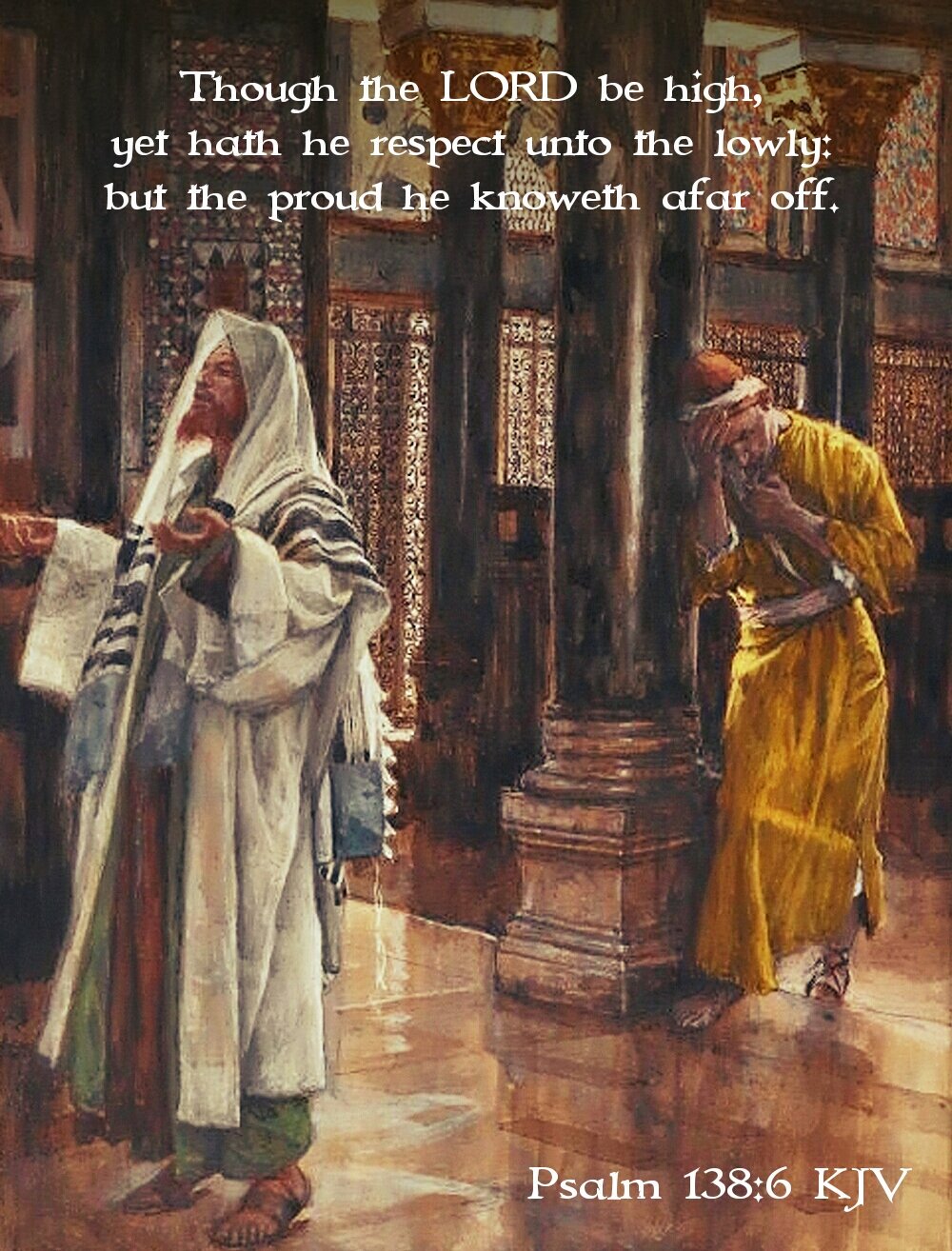Psalm 147
Praise ye the Lord: for it is good to sing praises unto our God; for it is pleasant; and praise is comely.
2 The Lord doth build up Jerusalem: He gathereth together the outcasts of Israel.
3 He healeth the broken in heart, and bindeth up their wounds.
4 He telleth the number of the stars; He calleth them all by their names.
5 Great is our Lord, and of great power: His understanding is infinite.
6 The Lord lifteth up the meek: He casteth the wicked down to the ground.
7 Sing unto the Lord with thanksgiving; sing praise upon the harp unto our God:
8 Who covereth the heaven with clouds, Who prepareth rain for the earth, Who maketh grass to grow upon the mountains.
9 He giveth to the beast his food, and to the young ravens which cry.
10 He delighteth not in the strength of the horse: he taketh not pleasure in the legs of a man.
11 The Lord taketh pleasure in them that fear Him, in those that hope in His mercy.
12 Praise the Lord, O Jerusalem; praise thy God, O Zion.
13 For He hath strengthened the bars of thy gates; He hath blessed thy children within thee.
14 He maketh peace in thy borders, and filleth thee with the finest of the wheat.
15 He sendeth forth His commandment upon earth: His word runneth very swiftly.
16 He giveth snow like wool: He scattereth the hoarfrost like ashes.
17 He casteth forth His ice like morsels: who can stand before His cold?
18 He sendeth out His word, and melteth them: He causeth his wind to blow, and the waters flow.
19 He sheweth His word unto Jacob, His statutes and his judgments unto Israel.
20 He hath not dealt so with any nation: and as for His judgments, they have not known them. Praise ye the Lord.
This psalm starts with an injunction to God’s people to SING praises to Him! It is pleasant and comely, says David, to sing unto the Lord.
Christianity is a musical faith. Think of Paul and Silas, beaten, imprisoned, hurting; in chains, they sang praises to God. When you can find a song, in such dire circumstances, you have discovered one of the secrets of true praise. Music is a gift that God has given us.
As I write this morning, I’m listening to a CD of Andy Griffith singing hymns and gospel songs that I have known as long as I can remember. I’d say that well over half of my music collection is sacred music. It fills my head and my heart. There are many other musical genres that I enjoy, but for comfort and spiritual renewal you just can’t beat good praise music.
Verse 7 tells us not only to sing, but to use a harp as well. The harp was probably not like the one pictured, but smaller; it could beheld on one’s lap. Other musical instruments are mentioned in the Bible:. Daniel 3:5 mentions the horn, pipe, lyre, trigon, harp, bagpipe, I had to look up trigan. It’s another form of harp, like this picture:
Psalm 150 mentions the shofar, lyre, harp, drum, organ, flute, cymbal, and trumpet.
Ephesians 5:19 admonishes us to “speak among ourselves in psalms and hymns and spiritual songs, singing and making melody in your heart to the Lord,”
One of the jobs of the tribe of Levi in the Old Testament was to provide music in the tabernacle and the Temple, both vocal and instrumental.
Job 38:7 says, “When the morning stars sang together, and all the sons of God shouted for joy.” Science tells us that there is indeed sound emitted from the stars. God knew that long before scientists discovered it. He created the stars. He should know 🙂
Music can bring us together like nothing else can. It is a gift from God, Who is a musical being. I’ve said it before: I can’t wait to hear Him sing!











 David was bountiful if praise and thanksiving to the God he served and worshiped all his life. Of course, David didn’t know the story of the self-important Pharisee who praised himself, while the poor man spoke humbly to the Lord. That is the story that came to mind for me when I read v. 6 of this psalm.
David was bountiful if praise and thanksiving to the God he served and worshiped all his life. Of course, David didn’t know the story of the self-important Pharisee who praised himself, while the poor man spoke humbly to the Lord. That is the story that came to mind for me when I read v. 6 of this psalm.